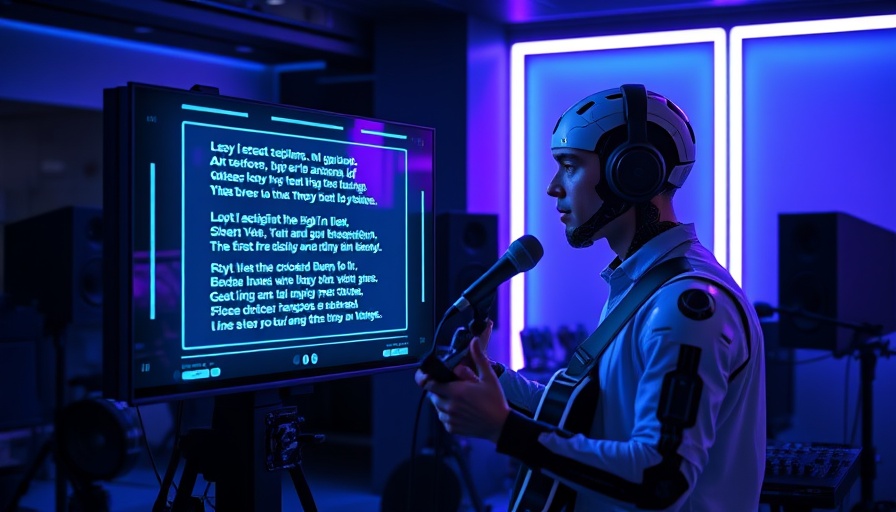
Amuse: The AI Songwriting Collaborator Revolutionizing Music Creation
As music continues to evolve in the digital age, creativity often comes with roadblocks. Musicians frequently face challenges in composing original material, leading to frustration and, at times, burnout. But what if tech could lend a hand? Enter Amuse, a groundbreaking AI developed by researchers at the Korea Advanced Institute of Science and Technology (KAIST) and Carnegie Mellon University (CMU), designed to be a supportive partner in the songwriting process.
A New Era for Songwriters
Amuse represents a significant leap in the field of digital music creation. Unlike traditional generative AI that merely produces content based on existing works, Amuse focuses on collaboration. It interprets various forms of inspiration – from text and images to sound clips – and suggests harmonic structures, enriching the creative process. This innovative approach resonated at the ACM Conference on Human Factors in Computing Systems (CHI) in Yokohama, Japan, where it received the Best Paper Award—an honor reserved for the top 1% of submissions.
Bridging Inspiration and Melody
Imagine inputting a phrase like “memories of a warm summer beach,” and Amuse instantly proposes harmonious chord progressions to match that evocative sentiment. This responsiveness makes the AI an ideal co-creator—one that encourages exploration rather than restricting artistic expression. This interactive method allows musicians to modify AI-generated suggestions seamlessly, providing a hybrid experience that keeps human creativity at the forefront.
Why Co-Creation Matters
The rationale behind Amuse's design lies in its understanding of musicians' needs. Professor Sung-Ju Lee, one of the leading researchers on the project, emphasized the importance of supporting the creator's intuition and maintaining control over the creative journey. In a landscape dominated by concerns over copyright infringement and one-size-fits-all solutions, Amuse presents a refreshing alternative. By prioritizing user agency, it represents a more ethical avenue for musical exploration in an era increasingly wary of AI.
Feedback from Real Musicians
Preliminary user studies of Amuse have shown promise. Actual musicians expressed enthusiasm for its capabilities as a creative companion, labeling it a “Co-Creative AI.” This suggests that beyond mere efficiency, Amuse could cultivate a supportive environment that stimulates inspiration, collects diverse musical ideas, and guides users back on track when creativity wanes.
The Bigger Picture: AI and Music Creation
This innovation from KAIST is a part of a broader trend where artificial intelligence intersects with the arts. From generating visual art to composing original scores, AI is increasingly becoming a critical tool for artists. However, the dialogue surrounding AI is not solely about its capabilities—it’s also about ethics and intent.
Future Predictions: Amuse and the Music Industry
With the music industry constantly evolving, the introduction of AI tools like Amuse opens new avenues for both amateur and seasoned musicians. As AI continues to advance, we could see a dramatic shift in how music is both created and consumed. These technologies may democratize music creation, allowing for a more diverse array of voices and styles to emerge.
How to Get Involved in AI-Enhanced Music Creation
For musicians intrigued by the potential of AI, learning more about interactive music creation tools, like Amuse or similar platforms, can be beneficial. Embracing these innovations isn’t just about staying current; it’s about enhancing one’s creative capabilities while navigating the complexities of modern music production.
Whether you’re a budding songwriter or a seasoned pro, integrating AI into your creative workflow might just be the next step in your musical journey. Add Element
Add Element  Add Row
Add Row 



 Add Row
Add Row  Add
Add 


Write A Comment